Mums say delays to inquests an 'act of cruelty'
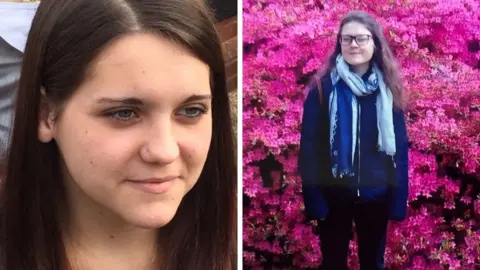 BBC
BBCTwo bereaved mothers have said waiting years for their daughters' inquests is unacceptable and has been an "act of cruelty" against them.
BBC analysis of Ministry of Justice figures found that the number of families in England and Wales waiting for an inquest for more than two years has more than tripled since 2018.
Gina Schiraldi, from Taunton, said waiting five years for her 19-year-old daughter's inquest left her in constant "limbo", while Joanna Davis, from Cheltenham, said waiting six years for her 22-year-old daughter's inquest meant she could not process her death.
A Government spokesperson said they were determined to reduce delays to inquests for grieving families.
'Not acceptable'
In 2019, Cariss Stone was found unresponsive on the bathroom floor of her room at a mental health unit at Wellsprings Hospital in Taunton.
The 19-year-old died two days later after a decision was made to withdraw life-sustaining care.
As with most people, the first time that her mother, Ms Schiraldi, had experienced an inquest was when she was told one had been launched to examine the circumstances of her daughter's death.
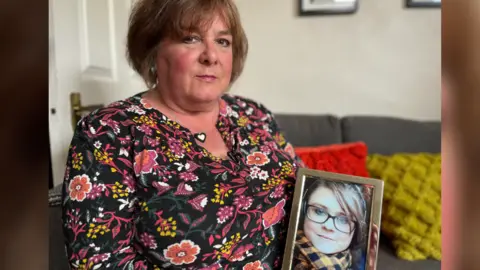
She said: "I think somebody from Somerset coroner's office got in touch with me and they said Cariss' inquest would be in about a year.
"And then it was two years and then it was three years and then four years."
The inquest was finally held and concluded in April this year, almost half a decade after her death.
Ms Schiraldi said: "Nearly five years is just not acceptable. We shouldn't have to wait that long.
"It feels like an act of cruelty, not only having to deal with all the grief and then you've got that [incomplete inquest] in the background.
"You feel in limbo, basically until one day you get a phone call to say the inquest is going ahead in a few months' time. It's delayed the grieving process."
An inquest is held when:
- The cause of death is unknown
- The person died of an unnatural or violent death
- The person died in prison or police custody or an NHS mental health facility
The Coroners (Inquests) Rules 2013 stipulate a six-month timeline for the completion of an inquest. Yet a BBC investigation has found that in the West of England - Bristol, Somerset, Gloucestershire and Wiltshire - nearly half of all inquests opened in 2023 took longer to conclude.
Additionally, the number of families waiting more than two years for an inquest in England and Wales to conclude has risen from 472 in 2018 to 1,685 in 2023, a rise of 257%.
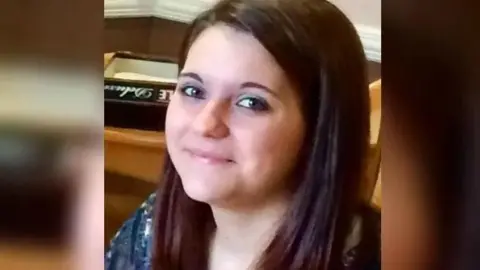 Davis family
Davis familyThe situation Ms Schiraldi described is something Joanna Davis and her Cheltenham-based family know all too well.
Her daughter Laura Davis took her own life at a mental health hospital in Warrington in 2017, aged 22, but the family had to wait until last year to get answers about the circumstances of their daughter's death.
Ms Davis believes the six-year delay at Cheshire Coroner's Court hampered their ability to grieve properly.
She said: "You're just sitting around waiting for reports, looking through reams of paperwork and meeting people to go over how she died.
"Going over that for such a long period, you don't actually have time to absorb that your child is dead."
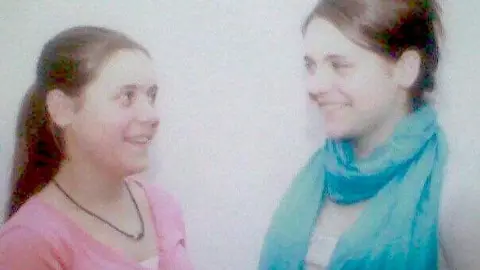 Family photo
Family photoThe charity Inquest helps families whose loved ones have died in police and prison custody, immigration detention, a mental health setting or where the death involved multi-agency failings.
Its support extends to help with the inquest process, and has said delaying inquests, delays changes and improvements from happening.
Inquest's parliamentary and policy manager, Rosanna Ellul, said: "A key reason why a lot of families go through this process is so that the same thing doesn't happen to another family.
"If an inquest is taking several years to be heard by a coroner's court, those conclusions can't be stated by the coroner and there's no way that the relevant organisations can enact that learning... and possibly preventing deaths happening in the future."
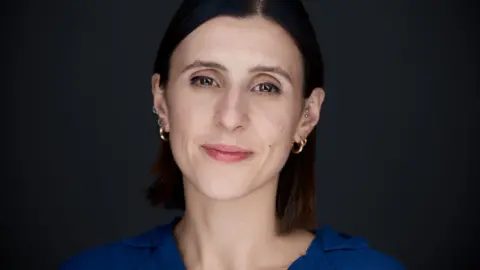 Rosanna Ellul
Rosanna EllulIndeed, Laura Davis's twin sister Nicola is currently receiving treatment at Wotton Lawn Hospital in Gloucester, which also came under criticism from the coroner in Laura's case.
Her mum, Ms Davis, said: "Nicola has been very close to death, she's been in a coma on four occasions. Exactly the same things are happening over and over again so it's frightening."
Gloucestershire Health and Care NHS Foundation Trust, which runs Wotton Lawn Hospital, said it had conducted its own investigation after Laura's death and "all learning from those processes has been incorporated into our trust's policies and procedures in a timely manner”.
'Chronic under-resourcing'
So what is behind the delays?
The now former chief coroner His Honour Judge Thomas Teague KC embarked on a tour of every coroner area in England and Wales, between January 2022 and March 2023.
In a report published this year, he said: "Given the chronic under-resourcing of the service, the recent rise in reported deaths, the increase in case complexity and, in some areas, the continued existence of backlogs from the pandemic, it is not surprising that avoidable delays persist."
But the issues plaguing the system go further back.
Ms Ellul said: "We've actually seen significant delays prior to the pandemic and so it speaks to an issue that is pre-existing.
"It's a system that is in great need of much better investment and prioritisation."
Considering recommendations
The issue of coroners court delays and reforms was also examined by a parliamentary committee earlier this year.
The recommendations made included encouraging greater funding, ensuring the steady availability of pathologists and reiterating their 2021 calls for the establishment of a National Coroners Service.
A government spokesperson said: “The entire justice system has been under significant strain for many years including coroner services, but we are determined to reduce delays for grieving families.
“We are carefully considering the Justice Committee’s recent recommendations in this area and will respond in due course.”
If you have been affected by anything in this article help is available at BBC Action Line.
Follow BBC Somerset on Facebook and X. Send your story ideas to [email protected] or via WhatsApp on 0800 313 4630.
